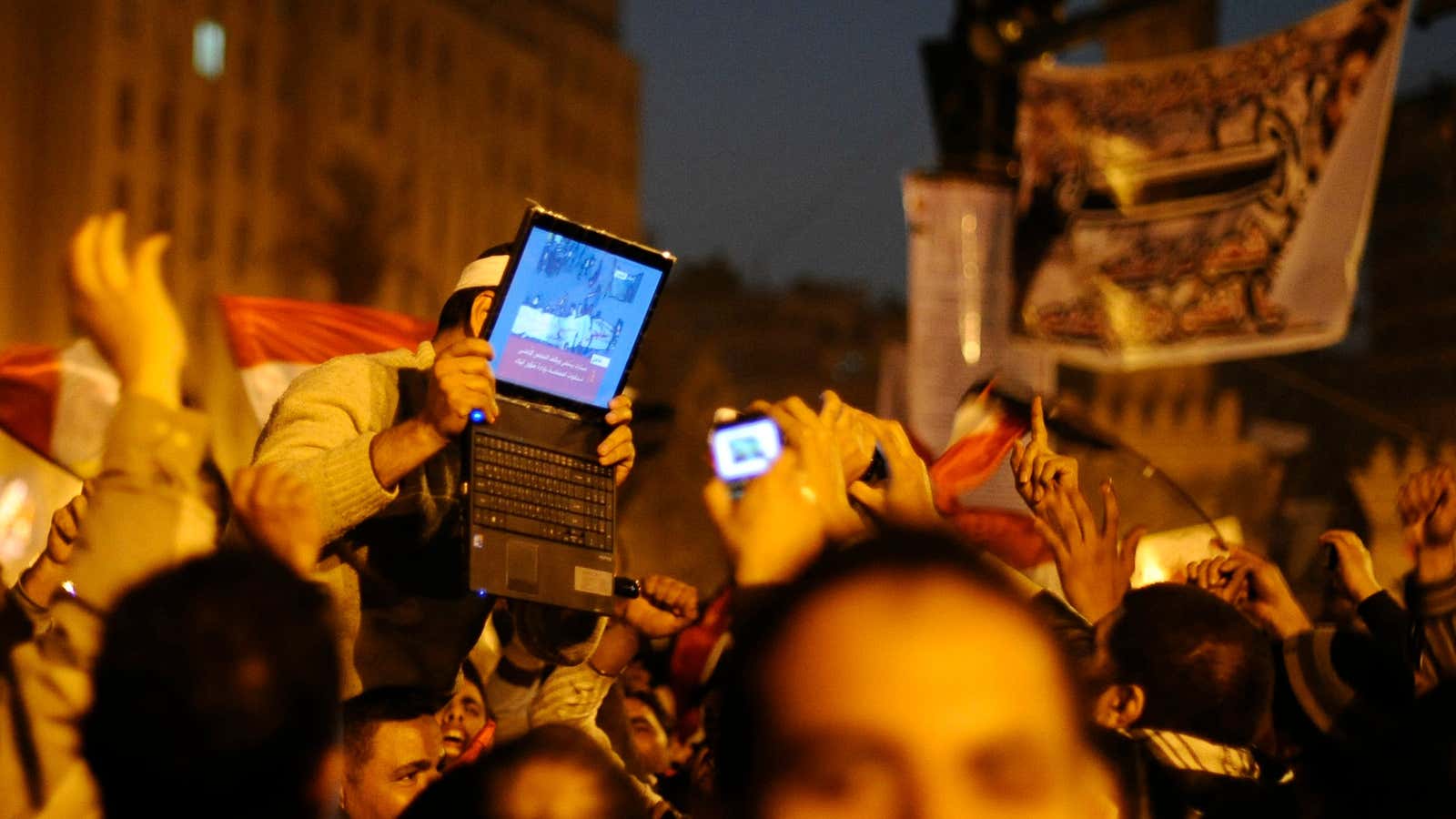I left Istanbul in mid-June to join a 10-week program in Silicon Valley to solve global grand challenges through technology. On the first day, futurist and director of engineering at Google, Ray Kurzweil, and futurist and CEO of X PRIZE foundation, Peter Diamandis, laid out our mission at Singularity University: Create a positive impact on a billion people in a decade and create disruptive innovation. The first thing that came to my mind were the demonstrations and police crackdowns I had just left behind in Turkey, and whether there was a way to disrupt this failed system of governance.
I wasn’t the only one asking that question—80 of us from 38 different countries spent the summer at Singularity University’s NASA Ames Research Center to devise solutions on eight global issues: water, security, poverty, energy, environment, food, global health, and education. We would be tackling these problems through so-called exponential technologies, such as artificial intelligence and robotics, biotechnology and bioinformatics, medicine and neuroscience, nanotechnology and digital fabrication, networks and computing systems, energy and environmental systems, and space and physical sciences. Yet no matter what we propose for these grand challenges, governments will ultimately form policies aimed at addressing these pressing issues. Unless we improve governance, our solutions are futile.
After late-night discussions with my classmates acknowledging this reality, six of us started a project called Bitgov which enables citizens to vote on proposed legislation anywhere and anytime, regardless of nationality. It aims to make it easy for people to understand legislation, but also to express their opinions and join in the decision-making process.
Here’s how the technology works: Public opinion is gauged using algorithms to find the most significant social media posts and the opinion leaders. We also provide policy makers with clear insights into the sentiments of voters. The endgame is to create a platform for global governance without borders.
Social media played an important role during the uprisings in Egypt, Tunisia, Turkey, and Brazil. In addition, technology tools were created by locals to monitor governments.
One of my classmates, Sami Ben Hassine, explains how this worked in Tunisia: “After the revolution in Tunisia, we were eight people living abroad and decided to take action for our country. The first thing we created was a citizen journalism platform and educated people. Then a platform to discuss the ideas on governance, and a communication tool between parliament and citizens followed,” says Hassine, a Paris-based Tunisian entrepreneur and engineer. “We needed to find a new way of hearing people’s opinions because the current system does not work.”
Egypt’s most successful example of using technology to watchdog government was the Mursi Meter, which monitored the performance of the president’s first 100 days. “It created a lot of attention. We became the only reliable information source,” says Amr Sobhy, an entrepreneur, information activist and also a classmate
The tools like the ones Amr and Sami created are precursors to new systems coming into the sphere of governance. There are already many organizations and companies like Ushadidi, the Sunlight Foundation, the Open Knowledge Foundation, Code for America, and Popvox that aim to make government more transparent and accountable. “However, seeing collecting people’s opinions as either just big data business or simply a civic movement wouldn’t bring governance to the next level. We must combine these two perspectives in a global and local scales to create sustainable governance tools,” says Roberto Alveraz, a Brazilian entrepreneur and Bitgov partner.
Already, BitCoin has disrupted currencies by presenting a net-aware global currency to replace the outdated infrastructure. Starting out virtually, it soon gained real traction. Governance will follow the same path. As Ilse Gayl, chairman of OneRain (a company of rainfall experts) and Bitgov partner, says: “We need civilization infrastructures for our future.”
